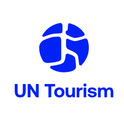Scaling-Up Tourism Action at UN Ocean Conference
Tourism has the potential to lead the shift towards a circular and regenerative blue economy, the UN Ocean Conference has been told.
UNWTO centred the discussions on tourism in a special Tourism Ocean Action side event of the Conference, held this week in Lisbon. Organized alongside the One Planet Sustainable Tourism Programme and in collaboration with the governments of Portugal and Kenya, the discussions highlighted the strong incentive that tourism provides for ocean conservation.
Tourism’s role in coastal conservation
Addressing the Conference, UNWTO Secretary-General Zurab Pololikashvili said: “Our wellbeing depends on a healthy ocean. As part of its responsible recovery, tourism needs to play a more active role in protecting coastal and marine environments. That’s why we are taking steps to shift to a more circular and resilient tourism model, and the benefits of this will be felt far beyond the sector itself.”
High level representatives from Portugal, Kenya and the Republic of Fiji including the Minister of Economy and Maritime Affairs of Portugal, H.E. Antonio Costa Silva; the Cabinet Secretary for Tourism and Wildlife of Kenya, Hon. Najib Balala; the Minister of Commerce, Trade Tourism and Transport of the Republic of Fiji, Hon. Faiyaz Koya; presented frontrunning tourism policies and stressed the importance of finding a balance between the environment and the economy and jobs creation through tourism. The UN Resident Coordinator for the Maldives and UNEP’s Ecosystem Division Director also took part in the side event.
“As we implement the sustainable tourism action plan 2020 – 2023, we are promoting changes in consumption behaviour, looking at the circularity of materials and at the efficiency in the use of resources, while supporting tourism companies adopt ESG and connecting marine protected areas with tourism” said H.E. Antonio Costa Silva, Minister of Economy and Maritime Affairs of Portugal.
Key ocean and climate initiatives outlined
In particular, the Glasgow Declaration on Climate Action in Tourism, including its five pathways “measure, decarbonize, regenerate, collaborate and finance” and the Global Tourism Plastics Initiative, which supports the sector’s readiness to the upcoming international legally binding agreement to end plastic pollution, were put forward as effective tools to accelerate tourism ocean action and new signatories to the latter were announced.
“The Global Tourism Plastics Initiative supports readiness of the tourism sector to meet upcoming regulations, especially in light of the upcoming international legally binding agreement to end plastic pollution. To meet the real need for strong mobilization, the largest businesses need to also be engaged,” noted UNEP, Susan Gardner, Director, Ecosystems Division
Turismo de Portugal recalled having signed the Glasgow Declaration on Climate Action in Tourism alongside the European Travel Commission. The Travel Foundation reminded of the need to build the knowledge of tourism stakeholders, especially small and medium enterprises. The need to trigger investments at scale in the protection and regeneration of ecosystems was highlighted by private sector representatives from Iberostar Group, which presented its coastal health strategy, and NOAH Regen, which presented an innovative finance model to protect and regenerate blue carbon ecosystems, building on the side-event on “Blue Carbon Ecosystems for Regenerative Tourism” organized on the previous day in collaboration with Forum Oceano.
RELATED LINKS
- Tourism Ocean Action - Towards a Circular and Regenerative Blue Economy
- The Glasgow Declaration on Climate Action in Tourism
About UN Tourism
The World Tourism Organization (UN Tourism), a United Nations specialised agency, is the leading international organisation with the decisive and central role in promoting the development of responsible, sustainable and universally accessible tourism. It serves as a global forum for tourism policy issues and a practical source of tourism know-how. Its membership includes 166 countries, 6 territories, 2 permanent observers and over 500 Affiliate Members from the private sector.
Media enquires: [email protected]
UN Tourism Communications Department
+34 91 567 8100
UN Tourism
